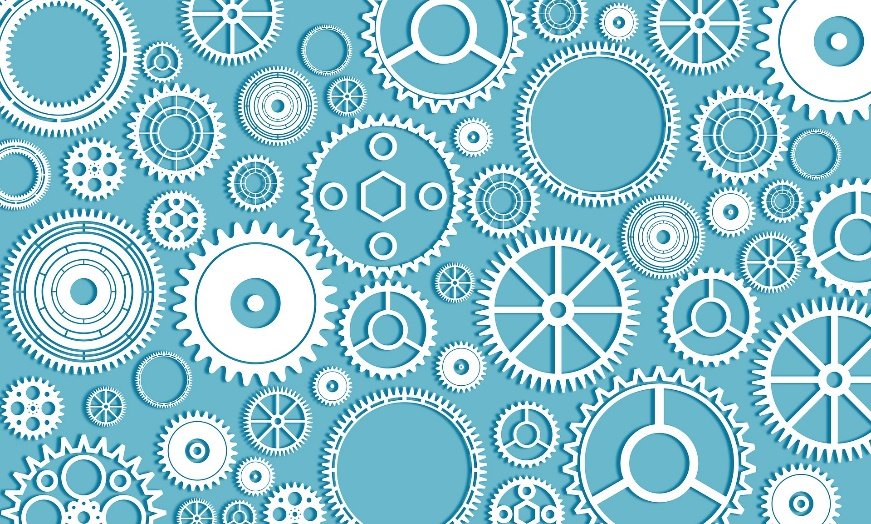
by Belinda Ollewagen | Nov 23, 2018 | water cooler
Frederic Matthias Alexander, founder of the Alexander Technique – a form of body mindfulness that has one break the cycle of unnecessary muscular and mental tension leading to ill health – said of habits ‘people do not decide their futures, they decide their habits and their habits decide their future’.
This is particularly true when it comes to choosing habits that will help your body function optimally and better encourage longevity, and one of the most important habits you can form is to regularly visit your water cooler to ensure your body remains properly hydrated on a daily basis. While drinking coffee, tea and soft drinks through the day definitely helps; drinking water remains the healthiest way to ensure you remain adequately hydrated. To help form that habit, here are a few simple, but effective ways to keep drinking water top-of-mind.
Make a point of drinking a glass of water at regular intervals throughout your day – when you wake up, when you brush your teeth, with each meal and then again before bedtime. And if drinking water on its own doesn’t appeal to you, try adding natural flavors like sliced strawberries or lemon – even freshly chopped fruit frozen in ice cube trays and then added to your water makes for a more enticing drink.
Keep a water bottle on hand and make regular trips to your office water cooler to replenish it and try to remember to sip on the bottle throughout the work day – studies show that sipping water throughout the day is more beneficial than trying to gulp down a few glasses all in one go. And if you’re at the gym be sure to do the same and be particularly mindful of taking regular sips to replenish the water you lose while exercising.
Sometimes the best way to enforce a new habit is to schedule reminders and then track your progress, so it might be a good idea to set up regular alerts on your phone or computer to prompt you to get up and walk over to the water cooler so that you drink that next glass of water. And at the end of the day be sure to review how much water you’ve consumed so that you know what your target is for the next day.
In short, the best way to form any new healthy habit is to keep working at it, so here’s to repetition and trying to be the healthiest we can be.

by Fern Shaw | Nov 8, 2018 | water cooler
Our kidneys carry a very weighty responsibility in our bodies – as organs, they are one of the biggest multi-taskers we have – they are responsible for a myriad of functions – primarily these (among others) are:
- To remove waste and extra fluid;
- Control blood pressure;
- Make red blood cells;
- Keep bones healthy (Vitamin D production) and;
- To control pH levels.
As our kidneys are made up of 79% water it becomes more apparent of how crucial they are to keeping our systems running smoothly.
To elaborate: Water helps the kidneys remove wastes from your blood in the form of urine. Water also helps keep your blood vessels open so that blood can travel freely to your kidneys, and deliver essential nutrients to them. But if you become dehydrated, then it is more difficult for this delivery system to work. Mild dehydration can make you feel tired, and can impair normal bodily functions. Severe dehydration can lead to kidney damage, so it is important to drink enough when you work or exercise very hard.
What may not be that apparent though is experiencing pain in the kidneys is often mistaken for back pain, which can be why we may not always realise that our kidneys are water deficient and are unable to function at optimal level.
That’s why it’s important to maintain good drinking water habits as this often is the simplest method towards ensuring good kidney health.
Due to the complex nature of our body’s kidneys function, it’s always good to monitor your water consumption and to rather be ‘water wise’.
One of the first indications you may be dehydrated can be quite easily seen in the colour of your urine. If you’re sufficiently hydrated, your urine will be light yellow or close to colourless. The darker yellow your urine is, the more dehydrated you are.
Another reason to maintain sufficient water intake is this practise can help reduce the likelihood of both kidney stones and urinary tract infections (UTIs). Kidney stones form less easily when there is sufficient water available to prevent stone-forming crystals from sticking together. Water helps dissolve the antibiotics used to treat urinary tract infections, making them more effective. Drinking enough water also helps produce more urine, which helps to flush out infection-causing bacteria.
At AquAid we take the business of proper hydration seriously, from a number of perspectives:
We’re constantly working to ensure that our customers are supplied with the right water cooler for their requirements.
We also provide re-usable water bottles to schools to encourage healthy hydration habits among the children (and staff!)
We understand the importance of helping others gain access to safe drinking water: for 20 years now, AquAid have donated funds to charity. The charities we support implement sustainable water projects for people in need. To date, we have (thanks in large part to our customers) donated over £14 million and helped more than 2 million people gain access to safe drinking water.

by Belinda Ollewagen | Oct 31, 2018 | water cooler
It’s nearly time for one of our favorite holidays, and if you have young children at home then you’ll understand how excitement levels begin to reach dizzying heights as the day approaches. Costumes need to be made; decorations need to be dragged out of storage and all the treats needs to be shopped for. Halloween is of course synonymous with sugar – I recently read that the average trick-or-treater collects 600g of sugar which equates to three cups of sugar! I don’t think any parent would willingly hand over three cups of sugar for their child to eat, so moderation (without being a killjoy of course) really is key along with increasing their water intake.
Between the energy expended trick-or-treating and all that extra sugar coursing through their bodies, they really do need the extra water to remain properly hydrated and to help clean out their systems. One way to help the process along is ‘Halloween Water’ – a two-pronged approach to make drinking water easier and more fun. Two-pronged, because it focuses on both the water bottles and the water itself.
To encourage trick-or-treaters to carry their water bottles with them, we suggest theming the bottles. There are a whole host of printable Halloween labels out there – Pinterest alone will keep you busy for hours trying to decide between different designs. The other option is to match the costume to the water bottle, if your child is dressing up as a vampire, make a matching outfit for their water bottle – a simple piece of black felt cut to size and tied around the neck of the water bottle makes the perfect vampire cape.
And then to make what goes inside their water bottles more enticing, have them help dice pieces of fruit to pop into their water bottles to add colour and flavor. Good combinations to try are strawberry and slices of lime; apple and cinnamon; cucumber and mint; raspberry and lemon or blueberries with ginger. Try to incorporate whatever tastes your child might enjoy as this will encourage them to keep taking those much-needed sips.
And if you happen to be celebrating Halloween at the office and it involves a glass or two of something ‘adult’, remember to make extra trips to the water cooler, because you too will need extra water to remain properly hydrated.
Happy Halloween Everyone!

by Fern Shaw | Oct 24, 2018 | water cooler, Water Coolers
While it may not be the most common phrase one might be used to seeing and the association isn’t immediately clear, the fact is that good hydration habits make a significant positive impact on our ability to breathe well. And as we are all acutely aware, breath is...

by Belinda Ollewagen | Oct 17, 2018 | water cooler
We feel thirsty; we head over to our closest water cooler and we drink water – simple problem, simple solution. But have you ever wondered exactly how your body knows when to feel thirsty and what triggers this reaction? The answer begins with your hypothalamus.
Your hypothalamus is responsible for a number of vital functions in your body, from regulating body temperature and sleep, to monitoring your appetite. And because it also monitors blood volume and pressure, it can detect, amongst other, excessive loss of fluid in sweat and diarrhea, or changes in blood sodium concentration levels. When any of this happens it sends a signal to the brain ‘drink something’, which is why the hypothalamus is known as the body’s thirst center. There are a number of factors that affect the thirst mechanism: aneurysms or other brain injuries can sometimes impair the sensors which regulate blood sodium levels; but most notably, changes can often be seen amongst the elderly where ageing can affect the body’s ability to maintain homeostasis.
But your hypothalamus triggering your thirst mechanism isn’t the only way your brain responds to dehydration. When water levels in the body drop, the hypothalamus instructs the pituitary gland to secret more vasopressin – an antidiuretic hormone which causes water to be reabsorbed from the urine, decreasing the need to urinate and conserving water until such time as water has been replenished. A condition known as Diabetes insipidus can come about if the pituitary gland malfunctions or if the kidneys no longer respond to vasopressin – in which case a synthetic drug called demopressin can be administered which mimics the function of vasopressin.
According to Brainfacts.org, an online source of information about the brain and the nervous system, ‘although much has been learned about the neural regulation of thirst, research continues. Scientists are exploring, for example, why such factors as swallowing and the emptying of fluids from the stomach appear to inhibit thirst even before the body becomes fully hydrated. Studies into the thirst mechanism also are helping unravel some of the mechanisms by which the brain motivates sleep, appetite, and other basic human instincts.’
We may only have scraped the surface of fully understanding the role the thirst mechanism plays in our body, but undeniable is the sheer brilliance of our brain! And while our body naturally seems to know what it’s doing, it would be wise to help it along whenever possible, so make visits to your water cooler a regular part of your day, because remaining properly hydrated helps your entire body perform better.





